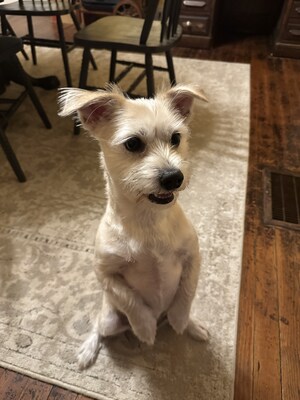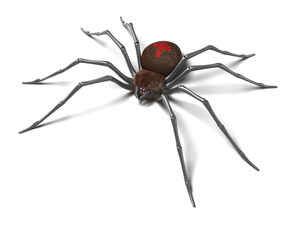MINNEAPOLIS, Feb. 9, 2022 /PRNewswire/ -- Since Valentine's Day is a holiday of the heart, the toxicology experts at Pet Poison Helpline scoured their files to see if any heart-related cases were received during Cupid's favorite week. For two mischievous pets, it turns out that ingesting a bag of heart medication hidden in pill pockets nearly killed their love of life.
"We were headed out of town to celebrate Valentine's Day last year, and our two dogs Callie and Dakota were staying with my sister-in-law," explained Victoria B. of Becket, Mass. "I had placed two weeks of Callie's heart medications in pill pockets and put them in a plastic bag to leave with her. While we were saying goodbye to family, the dogs apparently got into the bag that was left on the counter and ate the two-week supply of pills. I thought I was making the process easier for my sister-in-law by putting the medication in tasty pill pockets, but instead I turned them into a treat for Dakota. I won't be making that mistake again."
"Even though Dakota had lost a leg to cancer a few months earlier, he was able to jump up on the counter and get the bag of medication," added Victoria. "At home the medication is always kept on top of the fridge, so they don't have access to it. Once we realized that the dogs had ingested the medication, we postponed our trip and called our local veterinary hospital. They recommended we call the experts at Pet Poison Helpline."
"Callie and Dakota's story is a perfect example of why pet lovers need to take special precautions with their pets' medications while traveling or in unfamiliar locations," said Dr. Renee Schmid, a senior veterinary toxicologist at Pet Poison Helpline. "The medications Callie was taking for her congestive heart failure included pimobendane, and enalapril, both of which can cause hypotension, lethargy, weakness and possible tachycardia. Due to underlying health concerns of both dogs, and these medications being ingested in combination, we recommended immediate veterinary care."
Once at Berkshire Veterinary Hospital, the medical staff induced vomiting. Callie did not have any pills in her vomit, but Dakota returned mushy remnants. He was given a dose of activated charcoal to minimize absorption of the medications and both dogs were kept overnight for observation. Both dogs made full recoveries, though Callie did lose her fight with congestive heart failure eight months later. Dakota is still cancer free.
"Callie and Dakota were fortunate that their pill pocket buffet didn't have more extreme consequences, but they are not alone," added Dr. Schmid. "Pet Poison Helpline receives thousands of calls regarding pets ingesting medication, both human and animal, that had been inadvertently left within the pet's reach. Accidents often occur when pets are in unfamiliar surroundings or have access to dangerous materials not normally in their space. All the pet-proofing at home should be considered while traveling as well."
Pet Poison Helpline created Toxin Tails to educate the veterinary community and pet lovers on the many types of poisoning dangers facing pets, both in and out of the home. All the pets highlighted in Toxin Tails have been successfully treated for the poisoning and fully recovered.
About Pet Poison Helpline
Pet Poison Helpline, your trusted source for toxicology and pet health advice, is available 24 hours, seven days a week for pet owners and veterinary professionals who require assistance treating a potentially poisoned pet. The veterinarians and board-certified toxicology experts provide treatment advice for poisoning cases of all species, including dogs, cats, birds, small mammals, large animals and exotic species. As the most cost-effective option for animal poison control and pet health care, Pet Poison Helpline's fee of $75 per incident includes follow-up consultations for the duration of the case. Based in Minneapolis, Pet Poison Helpline is available in North America by calling 800-213-6680. Additional information can be found online at www.petpoisonhelpline.com.
Contact: Dr. Renee Schmid
Pet Poison Helpline
(952) 806-3803
[email protected]
SOURCE Pet Poison Helpline

WANT YOUR COMPANY'S NEWS FEATURED ON PRNEWSWIRE.COM?
Newsrooms &
Influencers
Digital Media
Outlets
Journalists
Opted In






Share this article